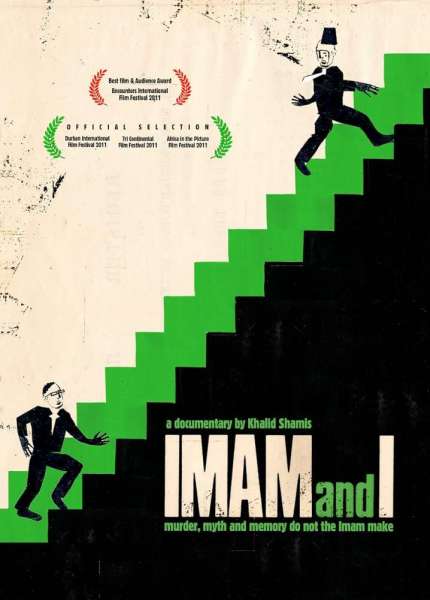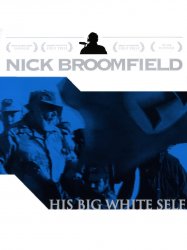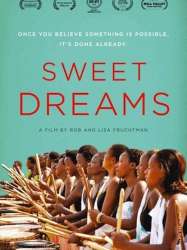The Killing of the Imam is a Sud africain film of genre Documentary
The Killing of the Imam (2010)

If you like this film, let us know!
- Infos
- Casting
- Technical infos
- Photos
- Videos
- Film quotes
- Characters
- Music
- Awards
The Killing of the Imam is a 2010 South African short documentary film.
Synopsis
In 1969, Imam Abdullah Haron was incarcerated and killed in detention in Cape Town, South Africa. A much loved community leader, he was active within an inactive community in raising awareness of the plight of his compatriots living under apartheid. During the 60s, Imam Haron became more active and began travelling abroad to raise funds for impoverished families back home. Mixing animation, documentary and stock footage, this short film looks at the last few years of the Imam's life and death. It is told by his grandson, the filmmaker, through the eyes of a child.Comments
Leave comment :
Suggestions of similar film to The Killing of the Imam
There are 8976 with the same cinematographic genres, 11131 films with the same themes (including 37 films with the same 7 themes than The Killing of the Imam), to have finally 70 suggestions of similar films.If you liked The Killing of the Imam, you will probably like those similar films :

We Want What's Ours (2011)
Origin USA
Genres Documentary
Themes Films set in Africa, Films about racism, Documentary films about racism, Documentary films about law, Documentaire sur une personnalité, Documentary films about politics, Political films
The film tells the story of both sides claiming the same land as their own. The Ndolilas family’s land was taken by the apartheid government in the 1970s without compensation, and ever since then they have been on a quest to get it back. Standing in their way are working class black homeowners who purchased portions of the Ndolila's land during apartheid. For the homeowners, the land and houses they have legally purchased are a reward for their hard work and the fulfillment of their hopes and dreams for a better life in the new democracy. For the Ndolilas, the land is part of their family legacy and hence deeply intertwined with their identity. Both sides have a legitimate right to the land, and the film encourages viewers to think about whose rights should prevail.

L'Afrique en morceaux (2000)
, 1h44Origin France
Genres Documentary
Themes Films set in Africa, Films about racism, Documentary films about racism, Documentary films about law, Documentary films about war, Documentary films about historical events, Documentaire sur une personnalité, Documentary films about politics, Political films
April, 1994. Genocide in Rwanda. 800,000 dead. A catastrophe that upset the balance in the entire region. The Great Lakes region of Africa ended the year with a bloodbath. This documentary shows the intrigues, the dramatic effects, the treasons, the vengeances that prevailed over those years and whose only goal was to maintain or increase each faction’s area of influence. In just ten years, the population saw all their hopes vanish: The dream of an Africa in control of its own destiny, alimentary self-sufficiency, the end of interethnic conflicts.

Sea Point Days (2008)
, 1h36Origin South africa
Genres Documentary
Themes Films set in Africa, Films about racism, Documentary films about racism, Documentary films about law, Documentaire sur une personnalité, Documentary films about politics, Documentary films about cities, Political films
Rating68%





Alongside the southernmost urban centre in Africa, separating city from ocean, lays a very special strip of land. Set against the beautiful backdrop of the Atlantic Ocean on one side and Signal Hill on the other, the Sea Point Promenade – and the public swimming pools in its centre – forms a space unlike any in Cape Town. Once a bastion of Apartheid exclusivity, it is nowadays unique in its apparently easy mix of age, race, gender, religion, wealth status and sexual orientation. Somehow this space has become one where all South Africans feel they have a right to exist, and where the possibility of happiness in a divided world doesn't seem unfeasible. But what is the reality of those coming here? How do people see their past, their present in this space and their future in this country?
 , 1h
, 1hDirected by Andrew Goldberg
Origin USA
Genres Documentary
Themes Films set in Africa, Films about racism, Films about religion, Documentary films about racism, Documentary films about law, Documentary films about war, Documentary films about historical events, Documentaire sur une personnalité, Documentary films about politics, Documentary films about religion, Political films, Films about Jews and Judaism
Rating67%






Flower in the Gun Barrel (2008)
Origin USA
Genres Documentary
Themes Films set in Africa, Films about racism, Documentary films about racism, Documentary films about law, Documentary films about war, Documentary films about historical events, Documentaire sur une personnalité, Documentary films about politics, Political films
Rating80%





To a large extent, the film consists of interviews with genocide survivors, many of whom were children in 1994. In all, over thirty survivors, perpetrators, and experts were interviewed for the film. In these interviews, the survivors discuss what it means to be a Rwandan and to live next door to people who killed their families. The survivors describe how they deal with their country's request that they forgive one another and move on, so that Rwanda can rebuild and unify itself. Perpetrators' views illuminate the madness that seized the culture in 1994; exploring the experience of apologizing to victims, and examining what it is like to be looked at as a murderer in Rwandan society.

His Big White Self (2006)
, 1h25Directed by Nick Broomfield
Genres Documentary
Themes Films set in Africa, Films about racism, Documentary films about racism, Documentary films about law, Documentaire sur une personnalité, Documentary films about politics, Political films
Actors Nick Broomfield
Rating68%






Sweet Dreams (2012)
, 1h26Directed by Lisa Fruchtman
Origin USA
Genres Drama, Documentary, Historical, Musical
Themes Films set in Africa, Films about music and musicians, Films about racism, Documentary films about racism, Documentary films about law, Documentary films about war, Documentary films about historical events, Documentary films about music and musicians, Documentaire sur une personnalité, Documentary films about politics, Musical films, Political films
Rating76%






As We Forgive (2008)
Genres Documentary
Themes Films set in Africa, Films about racism, Documentary films about racism, Documentary films about law, Documentary films about war, Documentary films about historical events, Documentaire sur une personnalité, Documentary films about politics, Political films
The film tells the story of two Rwandan women who come face-to-face with the neighbors who slaughtered their families during the 1994 genocide, and their personal journeys toward forgiveness. Featuring in-depth interviews with both survivors and murderers, As We Forgive provides an intimate, first-hand view of the encounters between genocide perpetrators and their victims’ families.

Witness to Apartheid (1986)
, 58minutesDirected by Kevin Harrington
Origin USA
Genres Documentary
Themes Films set in Africa, Films about racism, Documentary films about racism, Documentary films about law, Documentaire sur une personnalité, Documentary films about politics, Political films
Rating68%






Umurage (2002)
, 52minutesOrigin Espagne
Genres Documentary
Themes Films set in Africa, Films about racism, Documentary films about racism, Documentary films about law, Documentary films about war, Documentary films about historical events, Documentaire sur une personnalité, Documentary films about politics, Political films
In Rwanda, a hundred members of the Ukuri Kuganze Association, made up in its majority by survivors of the genocide, and a few of their executioners, freed after having confessed and asked for forgiveness in 2003, meet at a reinsertion center. These executioners are going home, in most cases to the same places where they carried out their crimes, and will have to "face" their victims and ask their forgiveness. In 1994, over a space of just one hundred days, almost a million people were murdered, that makes 10,000 dead per day.
 Connection
Connection